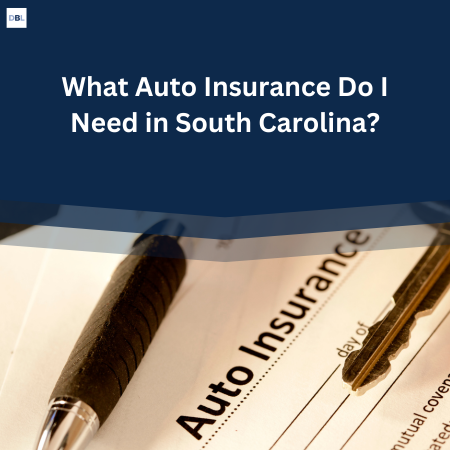
January is a time when a lot of folks rededicate themselves to doing what’s best for them. For some drivers, that might include getting serious about their auto insurance coverage. As a New Year’s resolution, insurance doesn’t capture people’s imaginations the way that weight loss or creating a budget might. But when you work with victims of serious car accidents, you see a lot of situations where a little more insurance could have made a big difference in someone’s life.
In this post, we’re going to talk a little about what insurance drivers are legally required to carry in South Carolina, and what drivers should carry in an ideal world. But if you’ve been involved in a motor vehicle accident and you need more, please don’t hesitate to contact us for a free consultation.
South Carolina Auto Insurance Basics
The state of South Carolina requires drivers to carry a minimum amount of liability insurance to cover injuries, deaths and property damage for which the purchaser is at fault. That is, you have to have insurance available in case you cause an accident that affects other people. The minimums are:
- $25,000 in coverage for property damage
- $25,000 in coverage per injured or killed person
- $50,000 in coverage per accident
In addition, the state requires you to carry uninsured motorist (UM) coverage, which covers injuries to you and your passengers caused by an uninsured driver, or a hit-and-run driver. The minimum for UM insurance is the same as it is for liability insurance: $25,000 in property damage, $25,000 per person to cover injuries or deaths, and $50,000 in total per accident.
However, the state does not require that you carry underinsured motorist coverage, which covers injuries to you and your passengers caused by a driver who doesn’t have enough insurance to cover all the damage they caused. The amount of UIM insurance cannot exceed the amount of liability insurance coverage that you carry. If you carry the minimum liability of $25,000 in property damage, $25,000 per person to cover injuries or deaths, and $50,000 in total per accident, those are the same limits you would have for UIM motorist coverage. We strongly encourage you to purchase UIM motorist coverage.
What More Could I Need?
Plenty of people get just those minimums and stop thinking about insurance. But if you can afford more liability and UM/UIM insurance, we’d like to argue for more, and here’s why: The cost of a serious crash can be astronomical.
For example, if you’re at fault for a motorcycle accident with a traumatic brain injury, the medical bills alone can easily exceed the $25,000 minimum liability coverage. The motorcyclist can sue you for the rest of the money, and if they win, you could lose your savings or your home. Many experts recommend that you carry at least $100,000 per person and $300,000 per accident in liability insurance, plus around $50,000 (because the average cost of a new car is $35,000) in property damage coverage.
For the same reason, it’s very important to carry more UM/UIM insurance than the minimum. In a tractor-trailer crash where you spend time in the hospital, the minimum of $25,000 in injury coverage is probably not going to be enough. In fact, medical bills after a serious accident can be ruinous even with insurance, and without adequate UM/UIM coverage, you’re on your own to cover them. Similarly, the minimum $25,000 in property damage is unlikely to cover the cost of replacing a new or recent vehicle. Experts suggest carrying the same amount of UM/UIM insurance that you would for liability: $100,000 per person/$300,000 per accident, and $50,000 for property damage.
Additional Optional Insurance
Finally, you’ll need other kinds of insurance to cover injuries or damage caused by anything other than an uninsured or underinsured motorist—say, from hitting a deer, or damage from a flood. You aren’t legally required to carry this kind of insurance, but without it, you’ll have to fix everything out of your own pocket. Optional insurance policies that you might consider include:
- Collision, which covers damage caused by any collision with an object, including other vehicles as well as things like trees.
- Comprehensive, which covers most other kinds of damage, including theft, floods, fires, animals and vandalism.
- Medical payments, or MedPay, which covers medical bills not covered elsewhere, regardless of who was at fault
- Rental car and towing coverage, which helps if your car is too damaged to drive
How much to pay for any of these depends partly on the value of your vehicle, and partly on your circumstances. For example, comprehensive and collision coverage tend to be more worth the cost as the value of the vehicle goes up. Medical payment insurance may be best if your health insurance plan has a high deductible that you’d have trouble covering yourself.
Let Us Help
Serious motor vehicle accidents can be life-altering. They can also be confusing, with auto insurers, health insurers and the other side pressing you for decisions you don’t have the tools to make. At David Blackwell Law, we do everything we can to help clients in this situation get fair and complete financial compensation. If you’ve been in an accident and you’d like to talk about your situation and your options, contact us to set up a free, confidential consultation.
